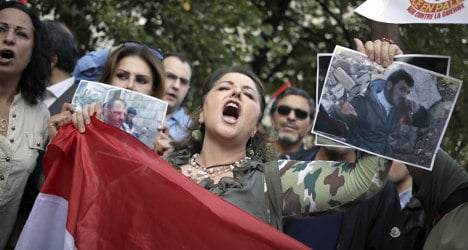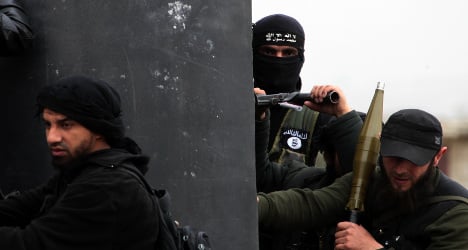French Prime Minister Jean-Marc Ayrault is due to meet with senior lawmakers on Monday, where he will present evidence that the Syrian regime was behind the deadly chemical weapons attack in Damascus last month.
France’s President François Hollande, who has vowed "to punish" Syria, has come under increasing pressure to seek approval for any military action in Syria from parliament via a vote.
He will hope the evidence, which will be given to the leaders of the various political groups, will be enough to convince skeptics that France should launch strikes against the regime of Bashar al-Assad.
“We are going to give the MPs everything we have – classified until now – to enable every one of them to take on board the reality of this unacceptable attack,” said Ayrault on Monday.
Separately, Elisabeth Guigou, president of the foreign affairs committee in France’s lower house – the National Assembly – told France info: “The PM will give representatives of this nation…evidence the attack took place and that it could only have been the regime who were behind it.
“This is not about attacking the regime but to stop Assad from being able to use chemical weapons against his people, around 1,400 of whom, including 400 children died [in the attack] according to our intelligence services,” Guigou added.
“This was not the first chemical attack, we have evidence of one taking place in April last year, but it is the biggest… The rockets carrying these chemical weapons could only have been fired by the regime.”
And in backing the case for military intervention, Guigou said: “If we do not put a stop to it, then the dictators who have chemical weapons will feel impunity to use them."
Ayrault will meet the main parliamentary leaders from both the Senate and the National Assembly to hand over previously top secret documents that have now been declassified.
On Sunday a government source also told AFP that similar documents that had been built up over years, showing Syria stockpiling chemical weapons, will soon be made public.
The French parliament is to hold a debate Wednesday on taking action on Syria, where more than 110,000 people have been killed in violence since an uprising against the regime began in March 2011.



 Please whitelist us to continue reading.
Please whitelist us to continue reading.
Member comments